EPISODE 126 -- FAITH OUT LOUD

POP CULTURE SPIRIT WUH.

I don’t even know what to say about this. Like many, I’ve tried over and over to turn this nightmare year into a kind of joke, 2016 as some kind of pissed-off bogeyman stalking everything that gives us joy.
But it’s just so hard.
When I was a kid Princess Leia was definitely the character with whom I identified least. Han was a lot of fun (and a little bit dangerous), and Luke had that open-eyed yearning for something more that even now speaks to me so much. Leia, meanwhile, was the stick in the mud, the “do it by the book” downer, the entitled authority figure. She dressed strange, had danishes for hair, and acted as though she was better than everyone around her.
Of course, the fact is in that original film she was better than everyone around her. Let’s be honest, Luke has no more character revealing moment than when Uncle Owen tells him to take care of the droids and he replies, “But I was going to Tashii Station to pick up some power converters.”(You can just about hear his little foot stomp.) He’s going to go on to greatness, but for the moment he’s kind of a whiny bumbler.
And Han is a frightened little boy who hides his insecurity behind a smirky swagger. Start to finish other than Ben, Leia is the only one in the film who understands what the stakes are and acts without fear, no matter the sacrifice.
She pays for her beliefs more than anyone, too. A whole planet dies because she won’t reveal where the rebels are hiding. And not just any planet – her home. As a result of her silence her parents are dead, her aunts and uncles, cousins, friends... Jimmy Smits, people. She killed Jimmy.

That is not okay.
One of the best takes I’ve heard on “Rogue One” is that it is the first “Star Wars” movie to actually appreciate the fact that these are stories about war. It’s a great point, but not entirely correct. Han and Luke are indeed coming out of other kinds of genres – almost a buddy cop movie, really – but start to finish Leia is in a war.
++

Last year in preparation for “The Force Awakens” I rewatched all six films. It had been a long time since I had rewatched the originals, and I’m not sure I had ever rewatched the new (painful) trilogy. But it was a fantastic experience; I found so many new ideas and interesting parallels between films that I had never understood before.
One of the sweetest insights was discovering that in the original trilogy, it’s Carrie that makes the films work. Mark Hamill has that sweet earnestness that befits Luke Skywalker, but his performance -- especially in “Star Wars” -- can get a little thin and gangly. Hamill is at his absolute best when he’s asked to be sad – looking out on the two suns of Tatooine, wondering if he’ll ever leave; standing there before the burnt skeletons of his aunt and uncle; watching Ben die -- those are his high points, and they’re quite something. But at other times he’s much like his character, awkward and not yet sure.
Today we think of Harrison Ford as the real actor, but again, in those early films he’s all smart-aleck swagger and not a lot of depth. You can actually see him improving over the course of “Empire”, getting closer to the level of emotion that Carrie is bringing. When they hit Cloud City he finally comes into his own. (Probably his best work in the series before “Awakens”.)
Meanwhile all along it’s been Carrie who’s been bringing much of the pathos, the urgency and the believability to the story. (Along with Peter Cushing and Sir Alec Guinness, of course.)
(Aside: I actually just wrote Sir Alec Baldwin instead of Sir Alec Guinness. I like it so much henceforth that is how I will always refer to him. "Sir Alec" or "milord.")
Carrie is also the one forced to deliver most of George Lucas’s techno-gobbledygook, and to try and hide some of the enormous and strange emotional leaps Lucas writes into the films. Go back to the scene in “Return of the Jedi” where Luke reveals to Leia that they’re siblings and watch Carrie fight like hell to sell this incredibly enormous and bizarre new information that she’s not given any time to process. It’s crazy writing, and yet Carrie never quits on it.
And most of the time she’s asked to do all of this while wearing danishes and/or doilies on her head, and without being allowed to wear a bra. (Lucas insisted no one would ever use underwear in outer space because when weightless your flesh expands, such that underwear would strangle you.
Ask yourself, how many scenes are there in “Star Wars” where there is no gravity. *sigh*
Oh George....)
We think of Carrie today more for her razor wit and her willingness to challenge incredibly stupid social notions about things like mental health or gender. (I highly recommend this hilarious interview Carrie did last year with “Good Morning America” in which she turns her press junket for “The Force Awakens” into an opportunity to compare the skinniness of her young interviewer to her own much more normal weight and look.)
But she was also an incredibly talented actress who never really got the credit she deserved.
++
After Carrie, George Michael, and Richard Adams – author of “Watership Down”, you had to think 2016 was pretty much done with us. How many big names can die in a single week?
Then this happened.
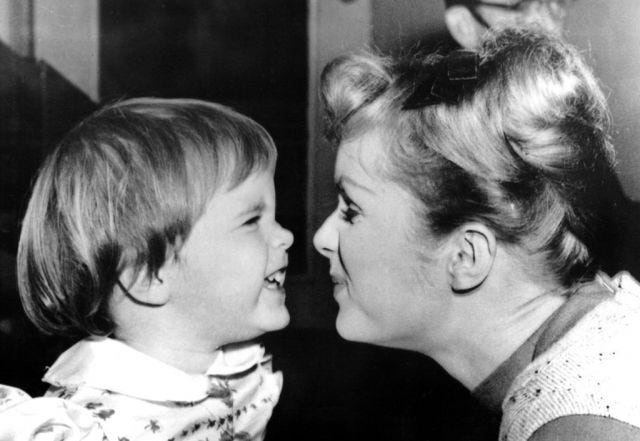
It really is the worst year.
++
Changing subjects...
I tend to think of Amazon and Hulu as sort of the ugly stepchildren of contemporary television. It has nothing to do with the quality of their original programming. Amazon in particular has developed some really fantastic shows. It’s just, both of these businesses built their brands around things that kind of undermine the project. Hulu started as a warehouse for reruns, and Amazon is basically an online Costco. Seriously, could you conceive of watching a show created by Walmart?
(Also, if I’m being honest, the fact that Amazon’s videos refuse to play on Safari is just ridiculous.)
But ever since Christmas of 2014, I’ve found myself hungrily going back to Amazon each winter for a show you probably haven’t even heard of called “Mozart in the Jungle”. It’s a half hour program about a fictional version of the New York Philharmonic and its wildly creative Mexican conductor Rodrigo De Souza (played with a ridiculously infectious childlike joy by Gael García Bernal).

I’ve been to the symphony a bunch of times in my life, but I can’t say that I know much about that world or even understand most of what I’m listening to. I’ve gone just hoping that I might feel something, or that it might trigger ideas in me.
So on the surface “Mozart” didn’t really seem like a show that I’d take to. But rather than offering some sort of carefully observed look at the behind the scenes world of classical music, a New Yorker article onscreen, “Mozart” turns out to be this quirky little sitcom that finds a hundred different ways to demonstrate music’s ability to speak to our lives and break open our hearts. It’s one of the few shows that always leaves me feeling happy; and occasionally it sneaks up and turns me into a puddle, as well.
Like the seventh episode of this season, called “Not Yet Titled” (free with Amazon Prime, $2.99 otherwise) in which a documentary filmmaker follows Rodrigo and his symphony as they perform for prisoners on Rikers Island after a bitter four month strike that has left the company completely divided.
Rodrigo brings the orchestra to Rikers because he believes that after the strike and all the conflict the company has been through, they have to rediscover what reason they have for performing together, if any. What their music is for, what it can accomplish.
While the show is a work of fiction, the producers actually did do this concert for Rikers inmates, and that’s what we see. Inmates are also interviewed before and after, talk about what it was like to hear a symphony orchestra for the first time, and their comments...well, all I can say is, have some kleenex handy.
As I was watching, the parallels to our world today hit me hard. We’re so divided, long past talking, not really understanding each other in the slightest or even wanting to. If we could just rally around something other than ourselves, give something of ourselves to people who are really in need, do our own concert at Rikers, wonder if we couldn’t find our way back to who we are.
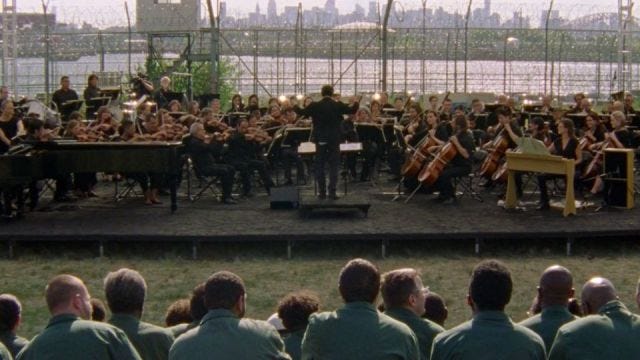
++
I’ve got a couple other little things I want to give you before finishing up, but can I tell you a little story about Rikers Island first?
When I first moved to New York, I used to say Mass there. And for those who don’t know much about Rikers, it’s important to note, it’s not a prison, but a jail. That is to say, unlike say Alcatraz (when there was an Alcatraz), or San Quentin, the people on Rikers have not been sentenced yet. Some haven’t even had a trial yet. Though they usually have more than ten thousand inmates, all of them are in one form or another of waiting.
The chaplaincy program was run by this slightly hunched, slightly built, slightly elderly French nun named Sr. Johnny. She moved through the prison like a bird, eyes and body always in motion, though often not in the same direction. She spoke quickly and quietly, as the French often do, and with an accent so thick that some Saturday afternoons as we left together on the bus out of the complex I would find myself becoming exhausted just trying to follow her rapid-fire thickly colored thoughts.
For the most part Mass at Rikers was pretty ordinary -- me in a large, unheated common space, the kind of area you could quickly convert into a cafeteria or a Christmas bazaar, moving through the normal ceremony before a group of young and middle aged men awaiting trial, while at the back guards stood around, chatting amongst themselves, not really needing to pay attention but there just in case.
But at the end of every Mass Sr. Johnny had instituted this practice that anyone who wished could come up and get anointed. And it was like a second communion line; virtually everyone came up. And while there were a million faces, in my memory they all blend into the same wide-eyed look not fearful so much as wanting to open opening themselves up to this moment. Hoping for some kind of blessing or change.
I’ve been a priest for almost fifteen years now, and I have to say Rikers was one of the best places I’ve ever gotten to celebrate Mass. I think because it was a place where you don’t have to posture. The fact that we’re all flawed is right there unavoidably on display, which is awful, yes, but also incredibly liberating. In that place it was okay to just be myself, another flawed and struggling human person. ++ These days it seems like end of the year posts always include some sort of list of great things from the year. I like reading lists like that, generally. I like watching great writers take things that I love and discover within them something that I hadn’t thought about.
But I also find the whole “best of/top 10” list trope kind of annoying. There’s always more good things to talk about than any list is going to capture. “Mozart” is a case in point –It’s no “Breaking Bad”, “Louie” or “Blackish”. It never appears on anyone’s top ten list. But it’s beautiful.
So I’m not going to list stuff for you. Instead, I’m going to end with some favorite people who have spoken recently about the future and hope.
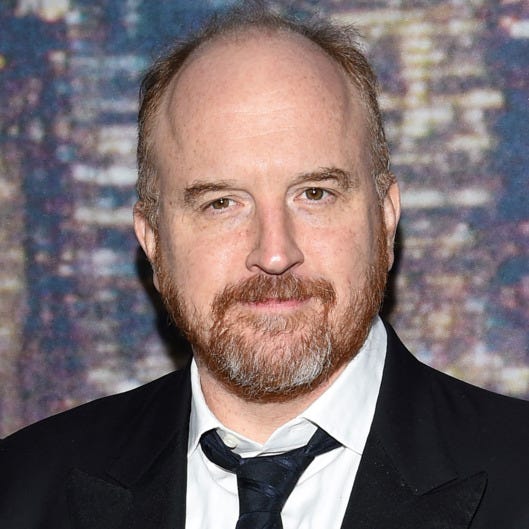
The comedian Louis C.K., from his newsletter on Christmas Eve:
“I hope your holiday is going well and that it goes well. And I wish you all a Happy New Year. Meaning that I wish for your New Years Eve to be happy. It’s hard to wish hundreds of thousands of people to have an entire happy year. That’s a lot. That feels greedy and hopeless and also some of you might not deserve a happy year. Everyone deserves a happy moment or day now and again but a whole happy year I would wish on maybe eight people and four of them are terminally ill children.
Also please remember that the turning over of one year to another is a mental construct that bears no more weight than the things that keep us apart and in competitive categories as human beings. Time is not moving. You’re not losing or gaining ground. You’re not separate from ‘them’ anymore than you’re separate from your own umbrella. It’s now, we’re us and this is here. If you’re in pain, this too shall pass. If you’re in luxury, this too shall pass. Ask an old lady how she’s doing. The internet is not real. Draw a picture on a napkin."

J.K. Rowling, from a series of tweets she did on Christmas Day:
“If your life is currently full of difficulties; if you aren’t where you want to be, either literally or figuratively, remember that extraordinary transformations are possible. Everything changes. Nothing is forever... You never know what the future holds. Astonishing reversals of fortune happen every minute.”
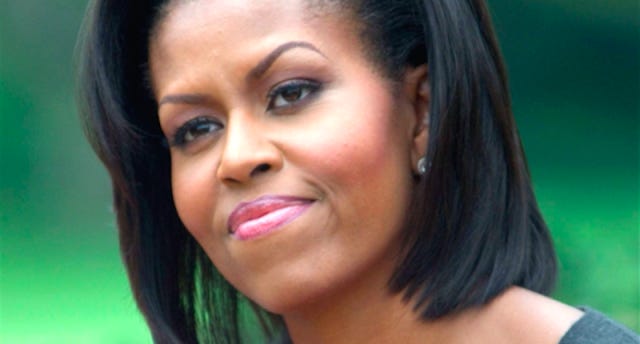
Michelle Obama, speaking to Oprah Winfrey last week:
“Hope is necessary. It is a necessary concept. And Barack didn’t talk about hope just because he thought it was a nice slogan to get votes. He and I and so many believe, What else do you have if you don’t have hope? What do you give your kids if you can’t give them hope?
“Our children respond to crises the way they see us respond. It’s like the toddler that bumps his head on the table and they look up to you to see whether it hurts. And if you’re like ‘Oh my God!’ they’re crying. But if you’re like ‘Babe, it’s okay, it’s okay.’ And I feel that way about the nation....
“We’re so afraid of each other. Color, wealth, these things that don’t matter, still play too much of a role in how we see one another. And it’s sad. Because the thing that least defines us as people is the color of our skin, the size of our bank account. You know this – it’s our values, it’s how we live our lives.
And you can’t tell that from somebody’s race, somebody’s religion, people to have act it out, they have to live those lives. ...and then I thought, well okay, let me live my life out loud, so that people can then see and then judge for themselves.
“That’s what I want young people to do. Just live your life. Live it out loud.”

From Queen Elizabeth’s Christmas Day message:
“Mother Teresa once said, ‘Not all of us can do great things. But we can do small things with great love.’
“...On our own we cannot win wars or wipe out injustice. But the cumulative impact of thousands of small acts of goodness can be bigger than we imagine.
At Christmas, our attention is drawn to the birth of a baby some two thousand years ago. It was the humblest of beginnings, and his parents, Joseph and Mary, did not think they were important.
Jesus Christ lived obscurely for most of his life, and never travelled far. He was maligned and rejected by many, though he had done no wrong.
And yet, billions of people now follow his teaching and find in him the guiding light for their lives.
I am one of them because Christ's example helps me see the value of doing small things with great love, whoever does them and whatever they themselves believe.
The message of Christmas reminds us that inspiration is a gift to be given as well as received, and that love begins small but always grows.”

And lastly, from my favorite newsletter writer Warren Ellis:
“Just remember that snow eventually melts, so it’s a lousy place to hide bodies.”
Good to remember... ++ LINKS ++ You can’t talk about little things adding up without linking to Paul Kelly’s great song, “From Little Things Big Things Grow”, about how one aboriginal Australian man’s protest led to the country’s indigenous land rights movement.
Merope Mills at the Guardian yesterday posted this fantastic piece about how a proposed interview with Carrie Fisher turned into a crazy hilarious day together. It captures Carrie in a way that nothing else I’ve read this week has—probably because rather than trying to deliver a eulogy, it just tells the funny stories of their day. A must read.
I really liked Amy Davidson’s piece this week in the New Yorker about Michelle Obama. It echoes some of Obama’s comments to Oprah, but also offers this as the “central precept” of her work as First Lady: “never believe that there is a room you have no right to walk into.”
I haven’t seen anyone really talk much about the death of Richard Adams this week. Which is ridiculous and would not happen if we weren’t living in “And Then God Came For All Our Dreams: Celebrity Edition.” “Watership Down” is one of those novels that you never forget reading – and really, how many of those are there? It’s probably well worth a re-read right now.
(And did you know Adams wrote a follow-up called “Shardik” about an injured bear who is mistaken for the reincarnation of God? Tell me you don’t want to read that.)
The Guardian did this profile of him last year, at age 94. It’s wonderful.
Lastly, this clip of George Michael singing “Freedom ‘90” live for MTV’s 10th anniversary (‘member when MTV played music?) somehow makes me want to cry and dance all at the same time. I don’t care what you believe about the afterlife, somewhere George Michael is singing. #YeahYeah ++
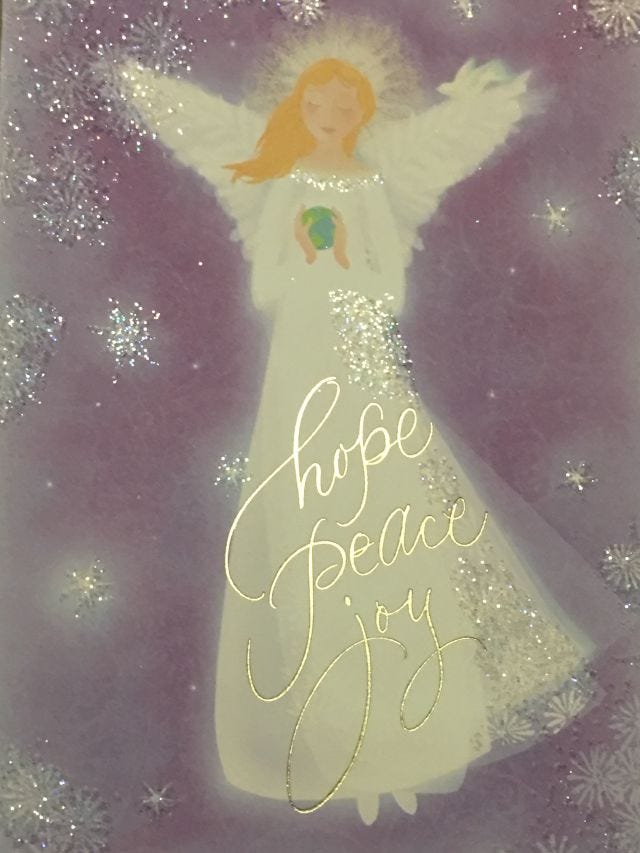
This year one of my Christmas cards was this cheapie little Barnes & Noble piece with an angel holding the planet in her hands. The card was, as you see, covered in glitter, which of course is awesome if you’re a ten year old girl and just a nonstop and irritating mess forever if you’re not. But I couldn’t help but choose it, because it’s the image I want in my head right now. I want to believe that some sort of higher power, however you imagine it, is holding us close to its heart and wishing for us the best.
I disagree with C.K. The New Year does offer a chance for something new. Maybe it doesn’t come automatically; we have to make choices. But real change of some kind is possible. Maybe it’s tiny. But sometimes, like Queen Elizabeth put it, small changes add up.
Have a happy holiday.

